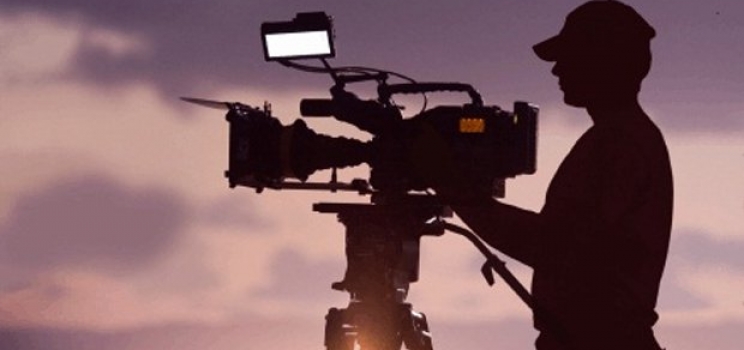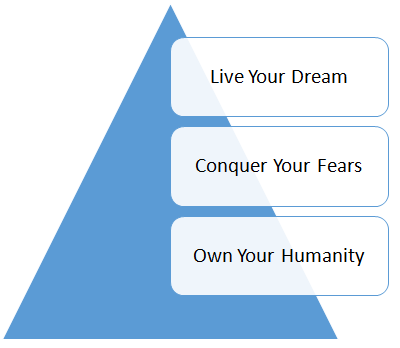
Humanity Media Corporation (HMC)
Introduction
“By making one part of a country aware of other parts, their people, arts, customs, and politics; by permitting the national leaders to talk to the people, and people to the leaders and to each other; by making possible a nation-wide dialogue on national policy; by keeping the national goals and national accomplishments always before the public–thus modern communication, widely used, can help weld together isolated communities, disparate subcultures, self-centered individuals and groups, and separate developments into a truly national development.” –
“Father of Communication Studies”, Wilbur Schramm –
Human beings matter; their exploits (mistakes or successes) and experiences have shaped and impacted upon the world from time immemorial. However, only in fairly recent times has human society come to recognize the importance of the autonomy of every human being. The international community now clearly acknowledges that humans matter intrinsically: who we are and what we think matters. Where does this recognition come from? What is it based on? And what are the hallmarks of that recognition?
The international community has grappled with the notion of equality since the mid- 20th century. The previous century had seen the almost worldwide recognition that slavery – the notion that one human being could be owned by and live in bondage to another human – was barbaric and an affront to humanity as a whole. In the latter half of the 20th century, reflections upon colonialism, apartheid and the Holocaust caused much of the community of nations to accept that every human being, irrespective of age, gender, race, ethnicity, nationality, language, class, social origin, or religion, is inherently equal.
International recognition of the basic dignity, equality and autonomy of all people has impacted strongly upon the formulation of fundamental rights, particularly with regard to freedom of expression. Freedom of expression is seen as a foundational human right and is internationally protected precisely because the notions of equality, dignity and individual development or fulfilment require that when human beings talk or otherwise express themselves, what they are expressing or communicating is a reflection of who they are, and therefore worthy of respect and protection.
Media can play a major role in protecting and promoting human rights in the world. It can make people aware of the need to promote certain values in the cause of human rights which are of eternal value to the mankind. Peace, non-violence, disarmament, maintenance and promotion of ecological balances and unpolluted environment and ensuring human rights to all irrespective of caste, color and creed should be the minimum common agenda for the media. The media can perform this role in different ways. It can make people aware of their rights, expose its violations and focus attention on people and areas in need of the protection of human rights and pursue their case till they achieve them. Media can also give publicity to the individuals and organizations, which are engaged in securing human rights. This will encourage as well as motivate others to do the similar work.
Media can inform and educate the people of their rights and suggest ways and means by which they can solve their problems and thus empowering them to protect their rights. Since media plays the role of communication between the state and the public, it can also play an effective role of making the authorities aware of their duties. Media’s new role today is reporting, analyzing and commenting.
HMC presents evidence to suggest that independent media play a critical role in improving governance and reducing corruption, increasing economic efficiency and stability, and creating positive social and environmental change. The media provide information to actors throughout society allowing them to participate in the decisions and debates that shape their lives. The media also play in important monitoring role in a democracy that enables citizens to hold their governments and elected officials accountable—leading to better policies and service implementation. For these reasons and others media development should be viewed as a desirable development outcome that underpins all others
The stronger the media becomes in a particular country, the better it is able to fulfil its various roles as watchdog, detective, educator, good governance advocate, and even catalyst for democracy and development. The more the press is able to fulfil these roles, the more the public is informed about public interest issues. The more the public is so informed, the more it is able to hold public power accountable and relate to government (through the ballot box, or in consultations or other interactions), the private sector and even civil society in a manner that is informed. The government of an informed citizenry is often able to engage in focused decision-making as there is a free flow of information and ideas that the government can access to improve its operations. The HMC will also provide a viable strategy for engaging in human rights activism through the act of reporting on human rights issues. This will make a contribution by highlighting the intricacies of media’s involvement in promoting human rights. It will show that in one way or the other, everybody might either willfully or otherwise be complicit in human rights violations, especially when it comes to the use of some personals values.
Vision
To Develop, hone and refine their own ideas, opinions and views; To Reject, discard or replace ideas, opinions and views positively by convincing others to their arguments, ideas, opinions and views and also to Consider and assess others’ arguments, ideas, opinions and views. Everyone shall have the right to hold opinions without interference. Everyone shall have the right to freedom of expression; this right shall include freedom to seek, receive and impart information and ideas of all kinds, regardless of frontiers, either orally, in writing or in print, in the form of art, or through any other media of his choice.
Mission
HMC stands for other areas -where the press can play a democracy advocacy role include: Cleaning administration versus corruption and nepotism, Appropriate usage of public resources versus mismanagement and waste, Proper policing and public safety versus public violence, particularly if meted out by the security or intelligence forces; Economic and social development versus growing poverty and unemployment and Generally increasing living standards versus glaring inequality and wealth disparities by Responsive and public-oriented public services versus bloated and self-serving bureaucracies ; and lastly,Transparency, openness and accountability versus secrecy, neglect and repression

Aims and Objectives
Plan of Operations
Events
GAP (60 days) Conference on “Role of Civil Bureaucracy in the Political Stability” One-Day Workshop on “Health is Wealth” Guest Lecture on “Global Warming” Debate Contest on the topic “Religion and Peace” One-Day Seminar on “Science: A curse or Bless” Workshop on “Local Government Impacts on Society” Sports Gala Cleanliness Campaign Get together Evening